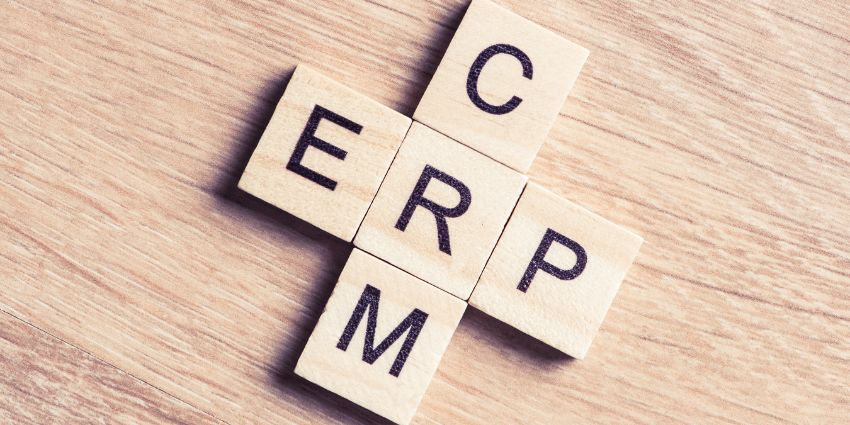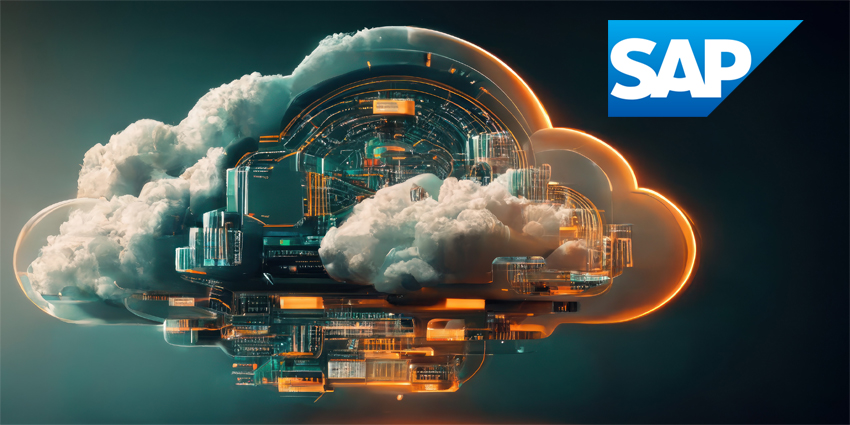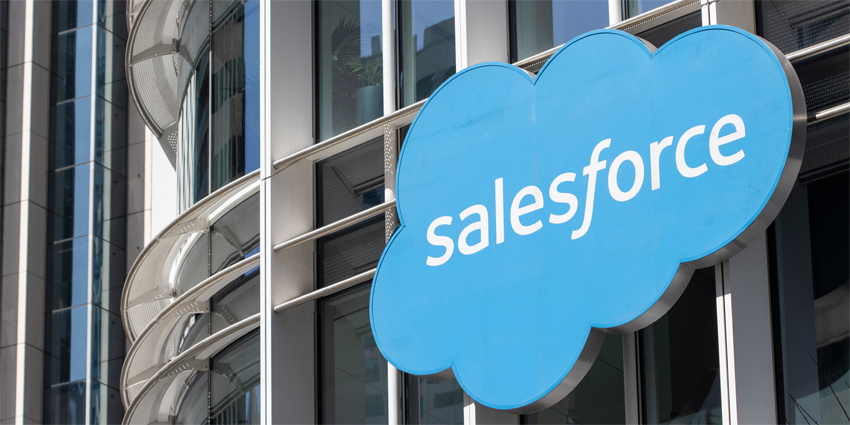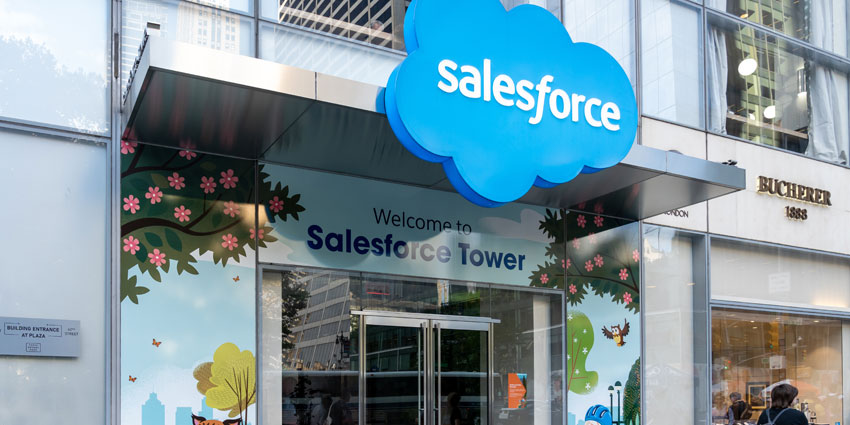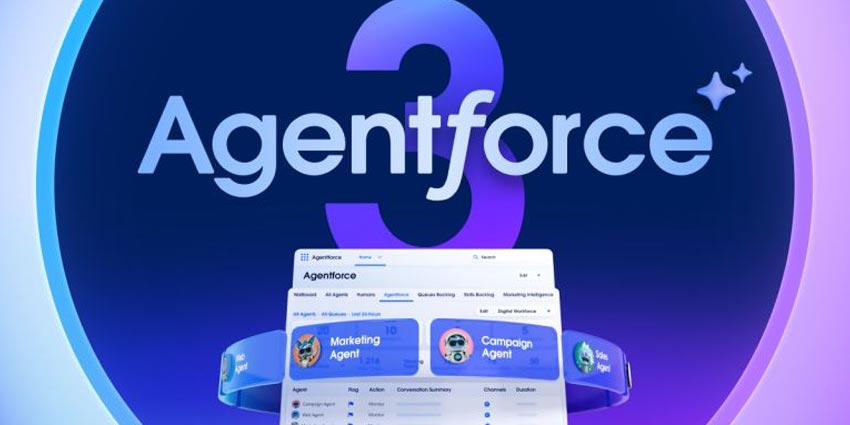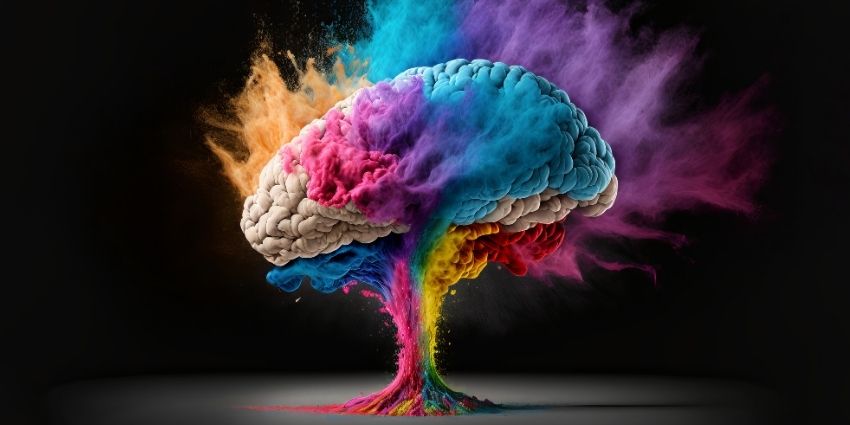ERP vs CRM: What’s the difference, and how do you know which solution you need?
At a glance, both of these crucial business tools seem very similar. They serve as essential data repositories, support multiple business departments, and enable automation. However, the focus of the two platforms is slightly different.
ERP, or Enterprise Resource Planning solutions, helps companies excel by connecting financial and operational systems to a central database. CRM, or Customer Relationship Management tools, help manage customers, increase sales, and boost loyalty.
Let’s take a closer look at the core components of these tools, how they work, and how you can decide which platform you need to achieve your business goals.
Key Takeaways
- CRM and ERP solutions are powerful tools that help centralize data and automate business processes.
- CRM solutions centralize and automate customer interactions, engagements, and insights.
- ERP platforms centralize and automate business processes and operations.
- CRM and ERP systems can be integrated to improve business efficiency and productivity.
- CRM and ERP integrations can reduce data silos and improve ROI.
ERP vs CRM: What is CRM?
CRM (Customer Relationship Management) solutions are software tools that consolidate customer data and streamline how companies manage customer interactions. These tools were initially developed for sales departments. Today, however, they’re a crucial component of the CX stack.
As companies evolved, embracing new technologies to manage customer service interactions and marketing, the CRM transformed too. Software vendors began combining sales automation, marketing, and customer service tools under one umbrella within the CRM landscape.
Today’s CRM solutions feature everything from contact and lead management tools to marketing features, artificial intelligence, analytics, and reporting capabilities.
Key Features of a CRM
- Contact management: Comprehensive tools offering an in-depth view of customer contact details, profiles, and historical information. These solutions often integrate with contact center systems so you can contact customers directly from the CRM platform.
- Marketing: CRM solutions usually feature marketing tools for email, SMS, and even content creation. They can help users segment contacts into different groups, create personalized campaigns, and increase marketing ROI.
- Sales tools: Most CRM has integrated solutions for pipeline and deal management, financial tracking, reporting, and team management. They may also include invoicing features and quote-generation tools.
- Workflow automation: Workflow automation tools allow companies to run marketing campaigns on autopilot, follow up with prospects instantly, and simplify data entry. Some tools can also automate customer service with customizable chatbots.
- Analytics and reporting: CRM solutions offer in-depth insights into your customer data, allowing you to track various metrics. They can monitor customer satisfaction and retention rates, loyalty scores, performance metrics, and more.
- Integrations: Most leading CRM platforms will integrate with other platforms, such as marketing automation, accounting tools, or contact centers. They can also connect with business management tools and ERP systems.
The Benefits of CRM Software
CRM technology is considered a must-have for most large and small organizations today. Studies show that 91% of companies with more than 11 employees have their own CRM software, and many rely on these tools to build better customer relationships and drive growth.
The right CRM software can:
- Improve customer service: CRM solutions help shape better customer experiences. Storing customer data in a single location makes it easy for companies to deliver personalized experiences at speed, increasing loyalty and retention.
- Enhance productivity: With built-in automation tools and a centralized repository of knowledge, CRMs boost productivity. They can speed up standard processes and empower employees to interact with customers on multiple channels through a single platform.
- Increase insights: CRM solutions store and manage vast amounts of data, from customer demographics and preferences to buying histories. This data can offer fantastic insights into growing your business and increasing revenue.
- Strengthen retention: With insights into customer needs and interests, sales and service teams can use a CRM to make better client retention decisions. They can improve your chances of preserving brand loyalty and increasing repeat purchases.
ERP vs CRM: What is ERP?
ERP (Enterprise Resource Planning) software evolved from “MRP” or material requirements planning tools. Those initial solutions gave manufacturers the tools to understand and manage the resources required to operate their businesses.
ERP solutions are a shared database for crucial business operations information. They track finances, accounts payable and receivable, payroll, and reports. However, ERP tools include inventory, order, and supply chain management tools.
Like CRM platforms, they can integrate with the contact center and other CX software. They also offer innovative features like conversational AI tools, automation systems, and more. Some ERPs even come with built-in CRM capabilities.
Key Features of an ERP
- Human resources: ERP solutions often come with tools for managing human resources processes, such as onboarding, hiring, and timekeeping. They can help you keep track of your employees and potentially include scheduling features.
- Tracking and visibility: With an ERP solution, companies can access excellent visibility into their supply chains, inventory, and processes. This makes minimizing potential delays easier, unlocking greater productivity and reducing operational costs.
- Financial management: Most ERP solutions will include extensive financial management tools, helping you to keep an eye on your data. You’ll be able to collect financial insights from various sources to monitor cash flow.
- Integrations: Like CRM systems, ERP tools can often integrate with various other platforms and services, including your contact center. They allow you to create a single source of truth for all your data and operational tracking.
- Reporting: Reporting tools are a common component of ERP systems. These tools can automatically aggregate and analyze data on your behalf, creating custom reports. They can even come with real-time dashboard capabilities.
Additionally, like CRM systems, ERP solutions can include various other advanced features, such as tools for workflow automation, AI systems for sales and marketing, and more.
The Benefits of ERP Software
In the question of “ERP vs CRM,” it’s worth noting that both solutions are extremely valuable for businesses. 71% of companies use ERP data to make their businesses more efficient and profitable. Most also rely on these tools to help them make decisions and empower their workforce. With the right ERP solution, you can:
- Reduce costs: ERP software reduces operational costs by consolidating various business functions into a single system. It can automate processes to reduce labor costs and eliminate everyday administrative and operational expenses.
- Boost efficiency: Innovative ERP systems use artificial intelligence and process automation to optimize manual and repetitive tasks. This doesn’t just save businesses time; it can also reduce the risk of errors and issues in modern workflows.
- Enhance decision-making: A leading ERP system provides a comprehensive view of organizational and financial performance. , making it easier to make data-driven decisions that facilitate business growth and optimize operations.
- Encourage collaboration: With a single source of data and a streamlined interface, ERP systems can help to improve collaboration across departments. Teams can access and use information independently or share it with their peers.
- Reduce risk: A sound ERP system can help to ensure data integrity, compliance, and financial control. With a centralized system and access controls, only the right employees can access sensitive data, reducing operational risk.
ERP vs CRM: What’s the Difference?
So ERP vs CRM: What’s the difference? Ultimately, the gap between these tools comes down to their focus areas. ERP systems are primarily used for tracking and managing financial and operational data. CRM systems concentrate on aligning customer-focused data.
Both tools help businesses increase productivity, automate repetitive tasks, and increase revenue, but they do so by concentrating on different things. For most companies, using both tools together will be critical to achieving the right results.
| ERP | CRM | |
| Deployment | Cloud-based solutions and on-premises options depending on your chosen vendor. | On-premises and cloud-based solutions tailored to specific business needs. |
| Core features | Extensive financial management and accounting modules, HR tools, sales and marketing tools, and workflow management. Supply chain and inventory management can also be included. | Comprehensive sales, marketing, and customer service tools, including customer communication options, collaboration features, customer profiles and segmentation, and ticket management. |
| Database | Information related to financial, human resources, and operational processes. | Information connected to sales, marketing, customer service, and competitor analysis. |
| Integrations | Connections with CRM tools, accounting software, payroll, contact centers, UCaaS platforms, and more. | Integrations with ERP systems, contact centers, UCaaS tools, accounting tools, marketing automation, and sales funnels. |
| Automation | Automatic report generation, invoicing, approvals, and workflow management. | Automatic lead scoring and routing for customer service cases, marketing and sales automation, and service options (chatbots). |
| Reporting and analytics | Planning, performance, and predictions for finances, operations, and HR. | Sales, customer service, and marketing campaign performance and trends. |
ERP vs CRM: Which Do You Need?
ERP and CRM tools are crucial business applications that store and analyze data in a connected database. Both can be delivered as an on-premises or cloud-based solution. Additionally, both are excellent for boosting productivity and efficiency.
When to Use an ERP
An ERP system could be ideal if you’re looking for a comprehensive solution for tracking employee information, inventory, and supply chains. It’s perfect if you want to streamline backend operational processes, like hiring and accounting.
It’s also excellent for tracking crucial business insights when your company grows. It can help you overcome scaling pains by keeping everyone on track and aligning insights.
When to Use a CRM
In today’s customer experience-focused world, virtually every business needs a CRM. With the right CRM system, you can track crucial customer conversations and journeys and optimize the experience you deliver across multiple channels. A CRM can help you understand the needs and priorities of your customers and give you an edge over the competition.
Modern CRM tools are also excellent for automating everyday customer service tasks, from data entry to following up with sales leads.
ERP vs CRM: Why Not Both?
Most companies won’t need to choose a CRM or an ERP solution. Eventually, the majority of organizations will need to access both tools. To run an effective business, you need to be able to manage and optimize customer journeys and operations with ease.
Initially, you might use separate platforms for your ERP and CRM technology, leveraging integrations to connect the dots between your data. Combining these tools is an excellent way to improve workplace efficiency and productivity.
After all, many of your employees will need to use the tools simultaneously. A sales rep might need to access a customer’s order history, credit status, and other information in real-time. A finance department may need to access the CRM system to calculate potential sales revenue.
Aside from leveraging integrations, another way to bring your CRM and ERP technology together is to select an all-in-one platform. Many vendors offer access to both ERP and CRM technology in the same suite, saving you money and complexity. These tools can also integrate with your contact center and other crucial business tools.
FAQs
What is the difference between a CRM and an ERP?
CRM systems focus on connecting data related to customer interactions for sales, marketing, and customer service teams. ERP systems primarily focus on back-office functions like supply chain operations, finance, and human resources.
Can ERP replace CRM?
Although ERP and CRM tools can share common benefits and features, they’re not interchangeable. They have particular focus areas, meaning you need both tools to run a successful business. However, you can integrate ERP and CRM platforms.
Does an ERP include a CRM?
Some ERP platforms can access CRM tools like contact management and sales or marketing automation capabilities. However, not all ERP systems have these features. You may need a specific integrated solution to get the right features.
